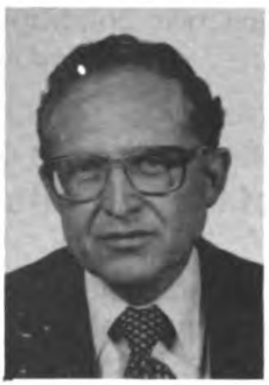Related Research Articles

Alfred Leroy "Roy" Atherton Jr. was a United States Foreign Service Officer and diplomat. He served as United States Ambassador to Egypt in 1979–1983. He was a Middle East expert who helped in the negotiations that led to the 1978 Camp David peace accords between Israel and Egypt.

Population Services International (PSI) is a 501(c)(3) registered nonprofit global health organization that began as an international not-for-profit provider of contraception and safe abortion services, and has evolved into developing and deploying programs today that target malaria, child survival, HIV, and reproductive health. PSI provides products, clinical services and behavior change communications for the health of people in high-need populations.

Arthur William Hummel Jr. was a United States diplomat.

John Gunther Dean was an American diplomat. From 1974 to 1988, he served as the United States ambassador to five nations under four American presidents.

Richard William Murphy is an American diplomat and career member of the foreign service.
Frank Almaguer is an American retired diplomat and career Foreign Service Officer. He has served in numerous positions with the Peace Corps, the United States Agency for International Development, the U.S. Department of State and the Organization of American States.

Samuel Winfield Lewis was an American diplomat. During a lengthy career with the United States Department of State, he served as Assistant Secretary of State for International Organization Affairs (1975–1977), U.S. ambassador to Israel (1977–1985) and Director of Policy Planning (1993–1994). As ambassador to Israel, Lewis played a major part in brokering the Camp David Accords between Israel and Egypt. He also headed the United States Institute of Peace from 1987 through 1993.

Arthur Adair Hartman was an American career diplomat who served as Ambassador to France under Jimmy Carter and Ambassador to the Soviet Union under Ronald Reagan.

John Herbert Holdridge was an American foreign service officer and diplomat, who was best known for having taken part in, and later recounted, Henry A. Kissinger's secret 1971 initiative to restore United States diplomatic relations with the People's Republic of China. He also served as U.S. Ambassador to Singapore (1975–1978) and Indonesia (1982–1986).
Joseph Abraham Mendenhall was a United States State Department official, known for his advisory work during the Kennedy administration on policy towards Vietnam and Laos. He was best known for his participation in the Krulak Mendenhall mission to South Vietnam in 1963 with General Victor Krulak. Their vastly divergent conclusions led U.S. President John F. Kennedy to ask if they had visited the same country. Mendenhall continued his work in the Indochina region after Lyndon B. Johnson assumed the presidency in wake of Kennedy's assassination.

Liberia – United States relations are bilateral relations between Liberia and the United States. The two countries shared a close relationship until the 1970s.

William Brockway Edmondson was an American diplomat in the United States Foreign Service, who served as the United States Ambassador to South Africa from 1978-1981.

Francis Terry McNamara is a retired career Foreign Service Officer, ambassador and author.
Jack Bloom Kubisch was a United States diplomat.
Jay Pierrepont "Peter" Moffat Jr. was an American diplomat. He served as the United States Ambassador to Chad from 1983 to 1985. He was the first ambassador to the newly reopened U.S. Embassy in N'Djamena. He was a member of the Butler-Belmont family.
African-Americans in foreign policy in the United States catalogs distinguished African Americans who have and continue to contribute to international development, diplomacy, and defense through their work with the U.S. Department of State, the U.S. Agency for International Development, the U.S. Information Agency, and the U.S. Congress, and other notable agencies and non-governmental organizations. The creators acknowledge the presence of the interagency contributions to the foreign affairs realm, and welcome additional content to showcase the achievements of African-Americans in other relevant USG agencies.
Howard Palfrey Jones was a United States diplomat whose career was focused on Southeast and East Asia. Between March 1958 and April 1965, Jones served as the United States Ambassador to Indonesia during the last years of the Sukarno presidency. He was known for his warm friendship and good rapport with President Sukarno, the first President of Indonesia and the country's premier nationalist leader.
Edward E. Masters was an American diplomat.

Joseph Bernard Gildenhorn was the U.S. Ambassador to Switzerland from 1989 to 1993 and was a co-founder of JBG Smith.

John Oscar Bell was an American diplomat and the US Ambassador to Guatemala from 1962-1965. After his time as ambassador, Bell worked as a Foreign Policy Advisor at the United States Strike Command (STRICOM) in Florida.
References
- 1 2 3 4 Lewis, Linda (6 May 2015). "CHARLES JOSEPH NELSON (1921-2011)". Black Past. Retrieved 9 November 2019.
- ↑ Bernstein, Adam. "Charles J. Nelson". The Washington Post. Retrieved 9 November 2019.
- ↑ "The Association for Diplomatic Studies and Training Foreign Affairs Oral History Project Ralph J. Bunch Legacy: Minority Officers AMBASSADOR CHARLES J. NELSON" (PDF). Association for Diplomatic Studies and Training. 31 October 1981. Archived (PDF) from the original on 3 July 2024. Retrieved 30 July 2024.